
Mount Olympus: Home of the Gods
Mount Olympus, towering at 2,917 meters, is Greece's highest peak and a UNESCO World Heritage site. Renowned in Greek mythology as the abode of the gods, this majestic mountain is a haven for adventurers, nature lovers, and history buffs alike. The mountain offers a variety of hiking trails, from easy walks to challenging climbs, catering to all levels of expertise. The most popular route, starting from the town of Litochoro, takes you through lush forests, striking gorges, and past crystal-clear streams, providing breathtaking views at every turn. For those interested in flora and fauna, Mount Olympus is home to over 1,700 plant species and numerous wildlife, including rare birds and butterflies. The Enipeas Gorge, with its stunning waterfalls and ancient caves, is a must-visit for anyone exploring the mountain. In addition to its natural beauty, Mount Olympus holds significant archaeological interest. Ancient ruins, such as the Sanctuary of Zeus and the ancient city of Dion, offer a glimpse into Greece's rich cultural history. Whether you're seeking adventure, tranquility, or a connection to ancient mythology, Mount Olympus promises an unforgettable experience.
Local tips in Mount Olympus
- Pack layered clothing; temperatures can vary greatly from base to summit.
- Start your hike early in the morning to avoid afternoon thunderstorms.
- Bring plenty of water and snacks, as there are limited facilities on the trails.
- Consider hiring a local guide if you're unfamiliar with mountain trekking.
- Don't miss visiting the Enipeas Gorge and its waterfalls for a refreshing break.
- Check weather conditions before your hike, as the mountain can be unpredictable.
Mount Olympus: Home of the Gods
Mount Olympus, towering at 2,917 meters, is Greece's highest peak and a UNESCO World Heritage site. Renowned in Greek mythology as the abode of the gods, this majestic mountain is a haven for adventurers, nature lovers, and history buffs alike. The mountain offers a variety of hiking trails, from easy walks to challenging climbs, catering to all levels of expertise. The most popular route, starting from the town of Litochoro, takes you through lush forests, striking gorges, and past crystal-clear streams, providing breathtaking views at every turn. For those interested in flora and fauna, Mount Olympus is home to over 1,700 plant species and numerous wildlife, including rare birds and butterflies. The Enipeas Gorge, with its stunning waterfalls and ancient caves, is a must-visit for anyone exploring the mountain. In addition to its natural beauty, Mount Olympus holds significant archaeological interest. Ancient ruins, such as the Sanctuary of Zeus and the ancient city of Dion, offer a glimpse into Greece's rich cultural history. Whether you're seeking adventure, tranquility, or a connection to ancient mythology, Mount Olympus promises an unforgettable experience.
When is the best time to go to Mount Olympus?
Iconic landmarks you can’t miss
Mount Olympus National Park
Discover the mythical home of the Greek gods, a UNESCO Biosphere Reserve with stunning hiking trails and rich biodiversity.
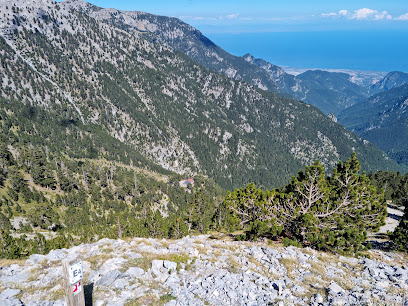
Skala Summit
Hike to Skala Summit on Mount Olympus for breathtaking views and a rewarding trek through mythical landscapes.
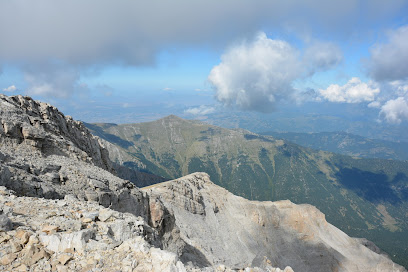
Sacred Cave of Saint Dionysios of Olympus
Discover the Sacred Cave of Saint Dionysios: a spiritual retreat nestled in the heart of Mount Olympus, near Litochoro. A serene and scenic escape.
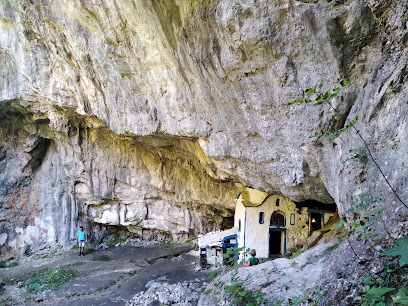
Muses Plateau
Explore the mythical Muses Plateau on Mount Olympus: breathtaking views, challenging hikes, and ancient legends await!
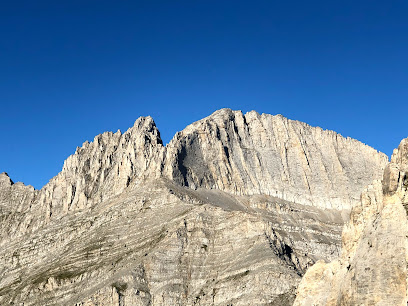
Mount Olympus 2917.727 m.
Explore the legendary Mount Olympus, home of the Greek gods, offering challenging hikes and breathtaking views of Greece's highest peak.
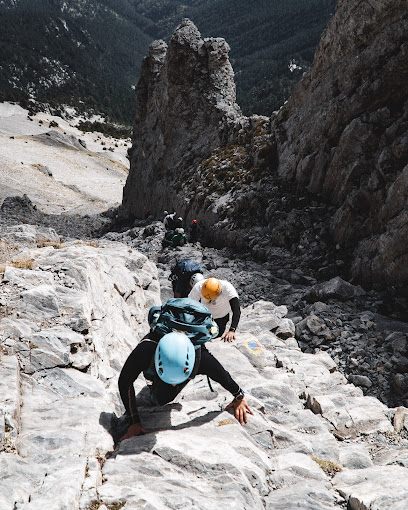
Yosos Pass
Discover the mythical Mount Olympus: Hike through Yosos Pass to breathtaking plateaus and challenging peaks.
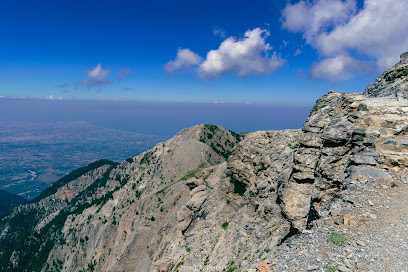
Hades Pass
Explore the mythical gateway to Mount Olympus' Muses Plateau, offering breathtaking views and hiking trails steeped in Greek legend.
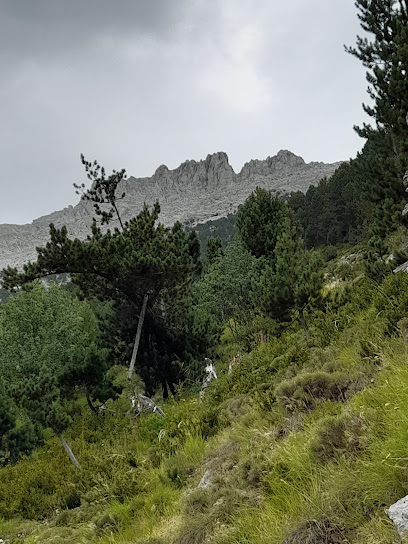
Unmissable attractions to see
New Holy Monastery of Saint Dionysios of Olympus
Experience the spiritual serenity and stunning architecture of the New Holy Monastery of Saint Dionysios, a must-visit attraction near Mount Olympus.
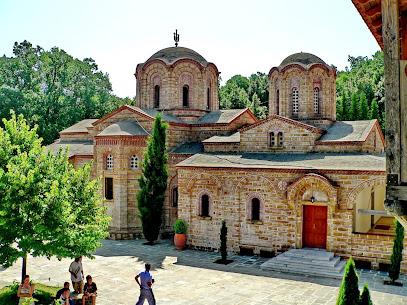
Býthos
Explore Býthos, a tranquil nature preserve near Litochoro, Greece, perfect for hiking, birdwatching, and reconnecting with nature.
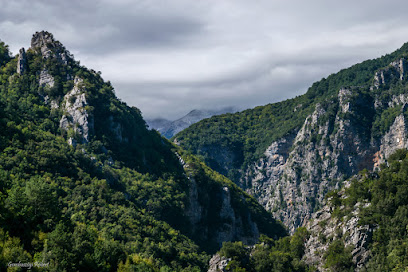
Φαράγγι Ενιπέα
Discover Φαράγγι Ενιπέα: A breathtaking gorge in Greece, perfect for hiking, nature photography, and enjoying stunning vistas of Mount Olympus.
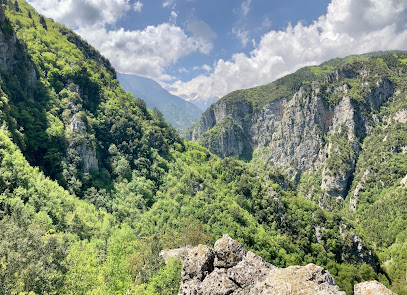
Olympus National Park Information Center
Explore the wonders of Mount Olympus at the Olympus National Park Information Center, your gateway to Greece's legendary mountain and its breathtaking landscapes.
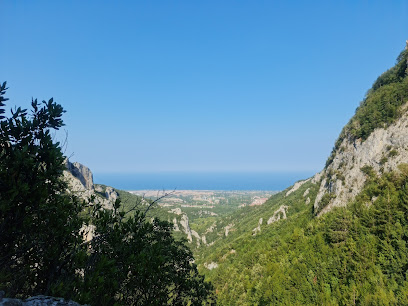
Waterfall Agia Kori
Experience the tranquility and breathtaking beauty of Waterfall Agia Kori, a hidden gem near Tirnavos, Greece, perfect for nature lovers and adventure seekers.
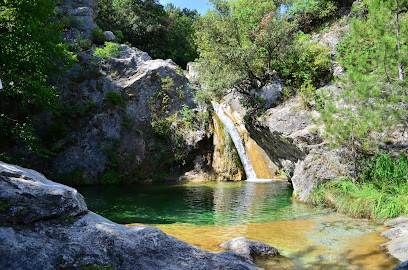
Litochoro Maritime Museum
Explore Greece's maritime history at the Litochoro Maritime Museum, showcasing artifacts that reveal the nation's deep connection to the sea.
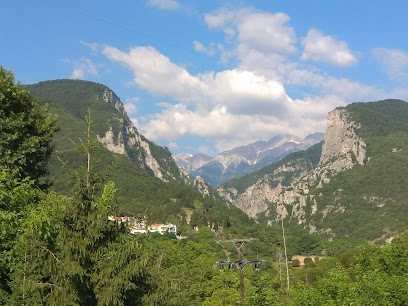
Lakkos Litochoro
Discover the serene beauty of Lakkos Litochoro, a perfect escape for nature lovers and adventure seekers in Greece.
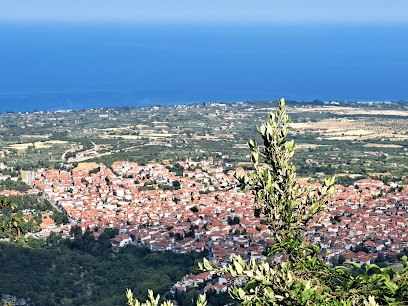
Pigadouli Water Spring
Explore the tranquil beauty of Pigadouli Water Spring in Dio-Olympos, a hidden gem perfect for relaxation and nature adventures.
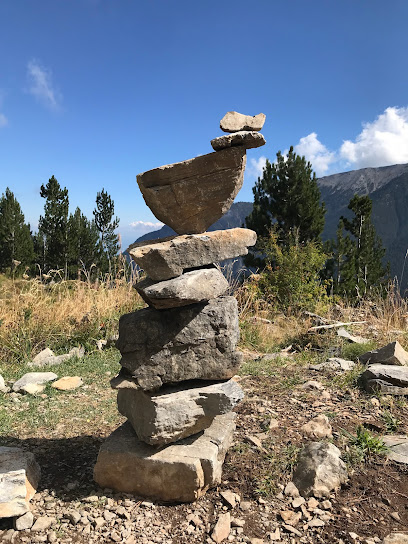
Lemós
Experience the beauty of Lemós, a premier hiking destination in Dio-Olympos, Greece, offering trails for every adventurer amidst stunning landscapes.
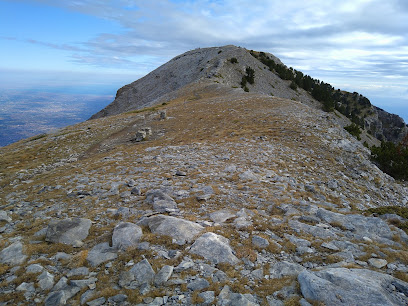
Olympus last secret waterfall
Explore the breathtaking Olympus Last Secret Waterfall, a hidden gem in Litochoro, perfect for hiking and connecting with nature's beauty.
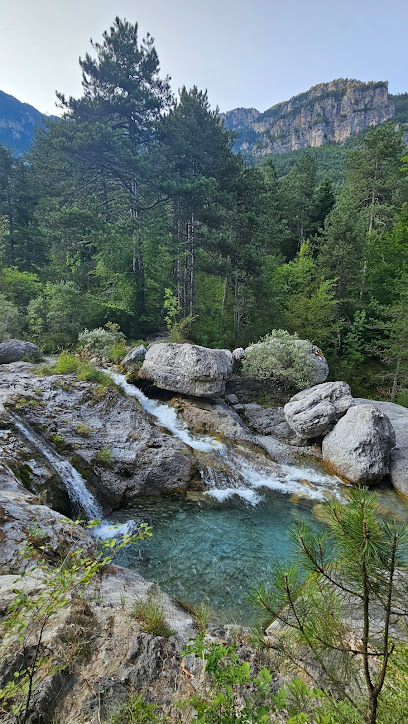
Leptokarya Serpentine Road
Experience the breathtaking beauty of Leptokarya Serpentine Road in East Olympos, a must-visit for nature lovers and adventure seekers alike.
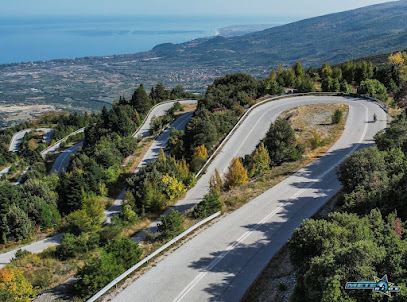
Κόψη γομαρόσταλου
Discover the breathtaking hiking trails of Mount Olympus, the mythical home of the Greek gods, and experience nature like never before.
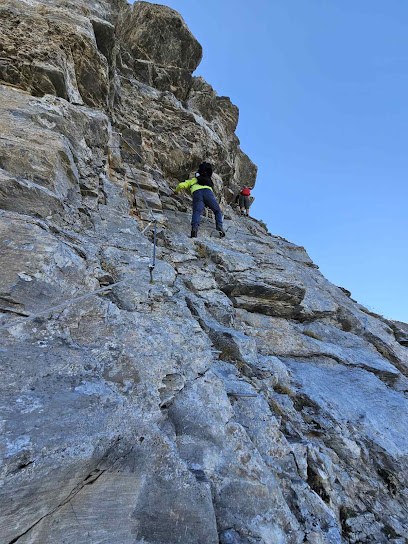
Panoramic view
Experience breathtaking views of Mount Olympus and immerse yourself in the natural beauty of Litochoro, Greece's scenic treasure.
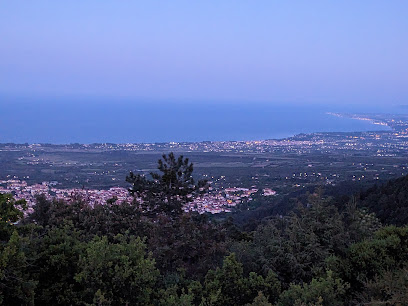
Κορυφή Σκούρτα 2476.36 μ.
Explore Korifi Skourta in Dio-Olympos, Greece: a stunning mountain attraction offering breathtaking views, rich biodiversity, and a touch of ancient mythology.
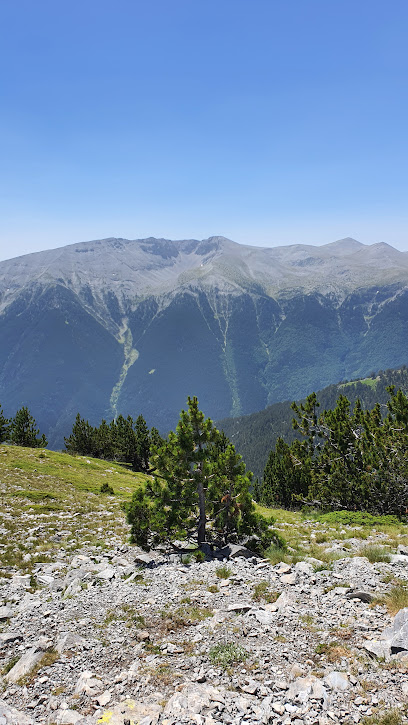
Yosos Pass
Discover the natural beauty of Yosos Pass, a scenic gateway in Dio-Olympos, Greece, perfect for outdoor adventures and breathtaking landscapes.
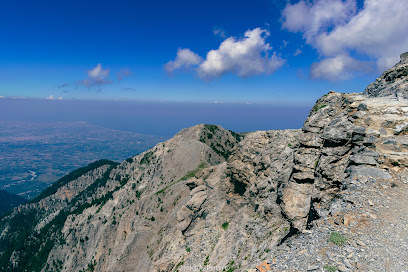
Essential places to dine
Μεζέ Μεζέ
Discover authentic Greek cuisine at Μεζέ Μεζέ in Litochoro, where every dish tells a story of tradition and flavor.
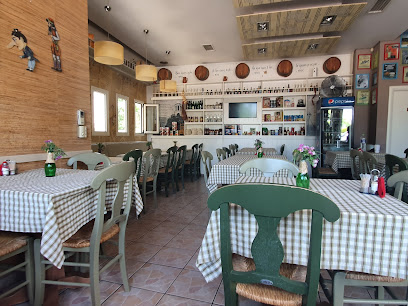
Prionia
Discover authentic Greek cuisine at Prionia, where breathtaking views meet delicious flavors near Mount Olympus.
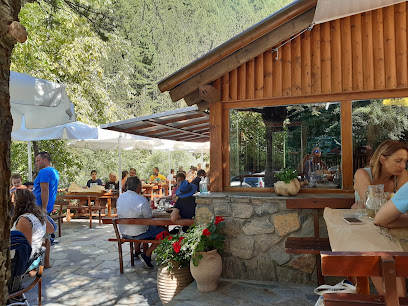
Psarokokkalo
Discover fresh seafood delights at Psarokokkalo in Katerini - a premier oyster bar offering exquisite dishes and local flavors.
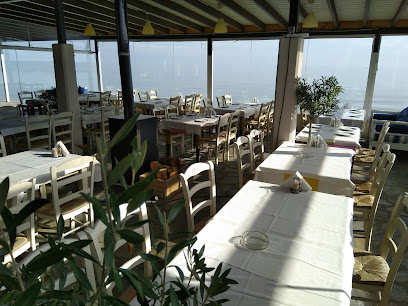
Taverna Olympos
Savor authentic Greek cuisine at Taverna Olympos in Palaios Panteleimonas, where tradition meets breathtaking views.
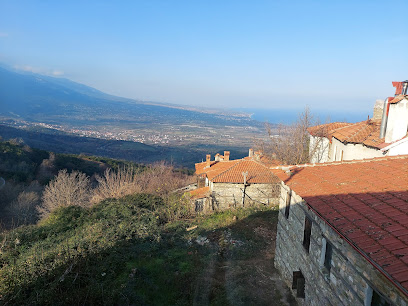
Stavros Refuge - Shelter D
Discover authentic Greek flavors at Stavros Refuge - Shelter D while surrounded by breathtaking views near Mount Olympus.
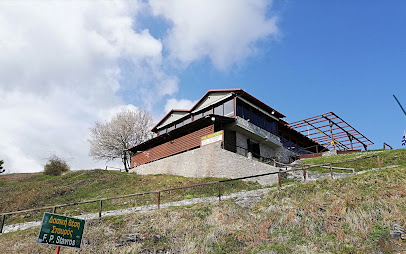
Ta Mezedakia
Experience authentic Greek cuisine at Ta Mezedakia in Litochoro – a must-visit for food lovers seeking traditional flavors.
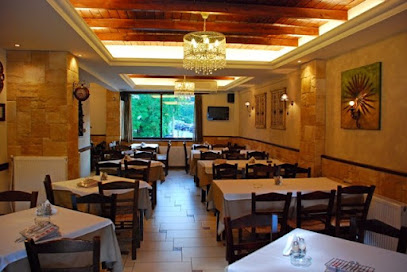
Aiolos Fish Tavern
Experience authentic Mediterranean flavors at Aiolos Fish Tavern in Plaka, where fresh seafood meets traditional Greek hospitality.
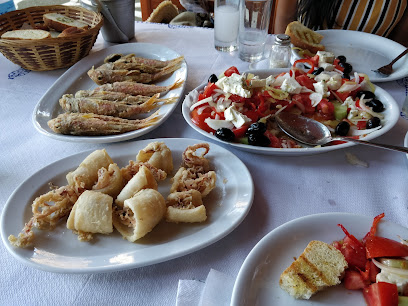
Γαστροδρόμιο Εν Ολύμπω
Experience authentic Greek cuisine at Γαστροδρόμιο Εν Ολύμπω in Litochoro - where every dish tells a story.
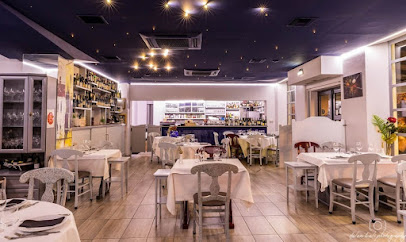
Ellinikon Fish Tavern
Discover authentic Greek flavors at Ellinikon Fish Tavern in Kalyvia Varikou – where fresh seafood meets warm hospitality.
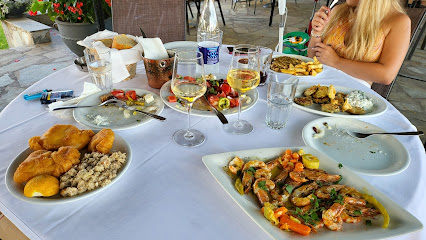
Flisvos FC
Experience authentic Greek cuisine at Flisvos FC in Platamonas – where tradition meets taste in every dish.
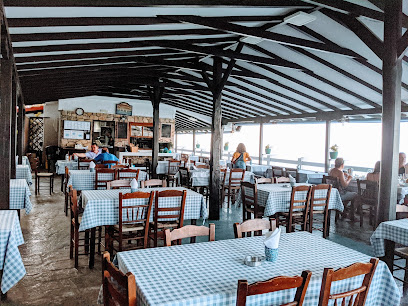
Roll in Stone
Experience exquisite flavors at Roll in Stone gastropub—Litochoro's culinary haven featuring local ingredients and craft beverages.
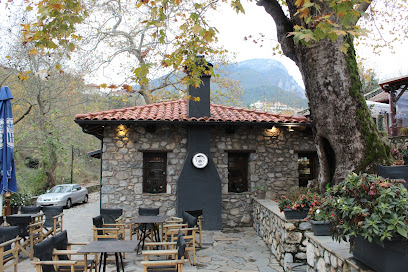
Zorbas Tavern
Experience authentic Greek cuisine at Zorbas Tavern in Leptokarya – where every dish tells a story of tradition and flavor.
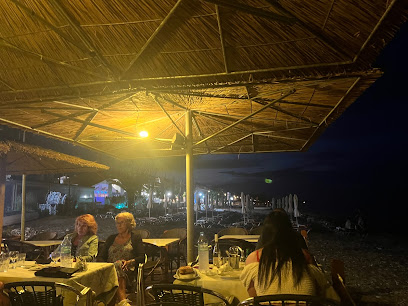
Milos Taverna
Discover Milos Taverna in Olympos for an authentic taste of Greece with stunning views and warm hospitality.
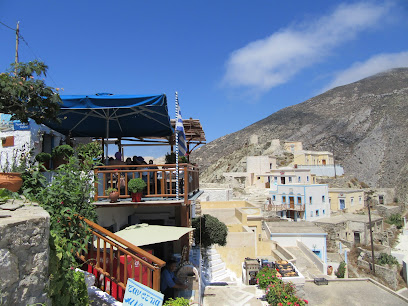
Μέδουσα, Medusa Seafood restaurant
Discover authentic Mediterranean flavors at Medusa Seafood Restaurant in Leptokarya - where every dish tells a story of the sea.
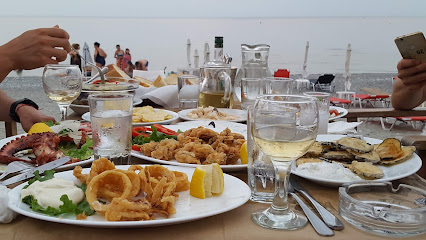
Myloi Restaurant
Experience authentic Greek cuisine at Myloi Restaurant in Litochoro - where every dish tells a story.
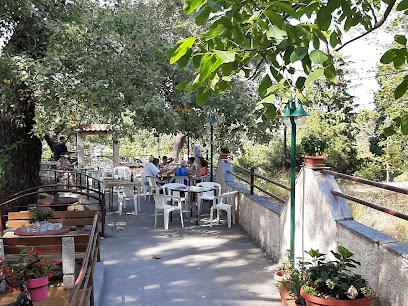
Markets, malls and hidden boutiques
New Holy Monastery of Saint Dionysios of Olympus
Explore the New Holy Monastery of Saint Dionysios, a serene spiritual retreat at the base of Mount Olympus, rich in history and breathtaking beauty.
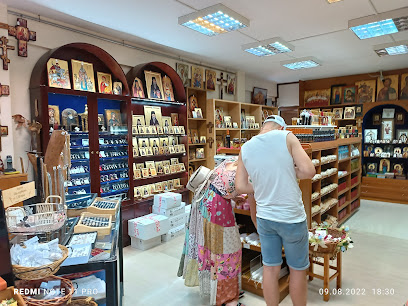
Mount Olympus National Park
Discover the enchanting landscapes and rich biodiversity of Mount Olympus National Park, a mythical paradise for adventurers and nature lovers in Greece.
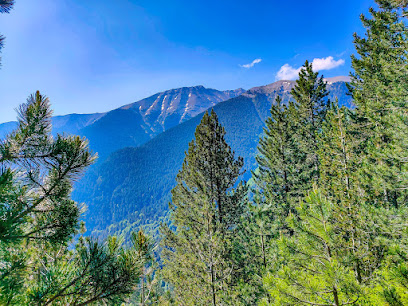
Archaeological Museum of Dion
Explore the rich history and artifacts of ancient Greece at the Archaeological Museum of Dion, a must-visit for history enthusiasts and curious travelers alike.
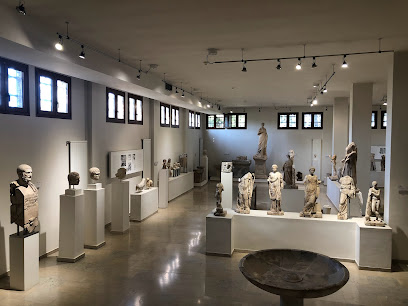
Prionia
Discover the flavors of Greece at Prionia, a stunning restaurant at the foot of Mount Olympus, where nature and cuisine unite.
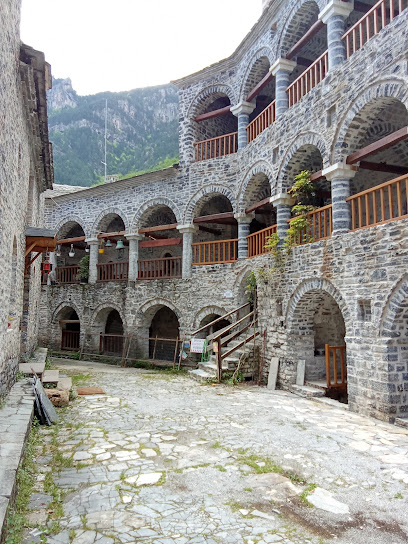
Stavros Refuge - Shelter D
Discover the beauty of Mount Olympus at Stavros Refuge, where traditional Greek cuisine meets breathtaking landscapes.
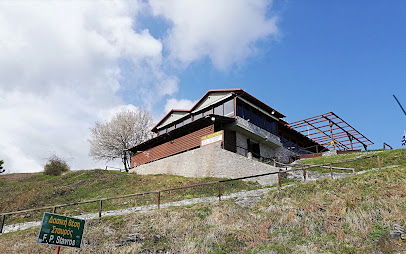
Spilios Agapitos (Zolotas) Refuge
Discover the breathtaking beauty of Mount Olympus at Spilios Agapitos Refuge, your perfect mountain retreat for hiking and relaxation.

Býthos
Discover the serene beauty of Býthos Nature Preserve, where lush landscapes and vibrant wildlife await your exploration in Greece.
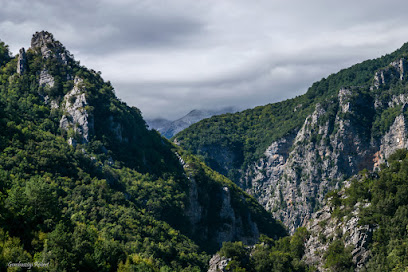
Old Holy Monastery of Saint Dionysios of Olympus
Explore the ancient charm and spiritual serenity of the Old Holy Monastery of Saint Dionysios of Olympus, a hidden gem in Litochoro.
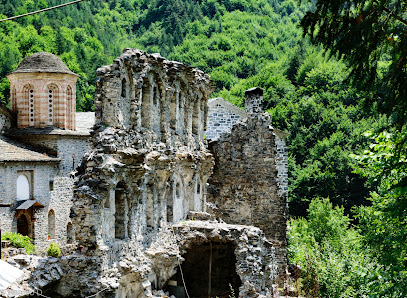
Mount Olympus
Explore the legendary Mount Olympus, Greece's highest peak, rich in mythology and stunning natural beauty, perfect for hiking and adventure.
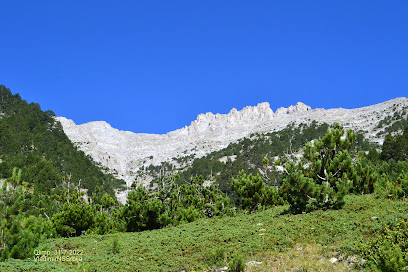
Giosos Apostolidis Refuge
Discover tranquility and adventure at Giosos Apostolidis Refuge, your gateway to the stunning landscapes of Litochoro and Olympus.
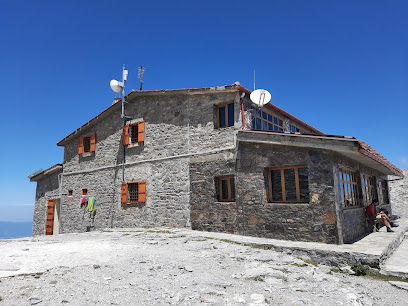
Olympus National Park Information Center
Discover the rich biodiversity and cultural heritage of Mount Olympus at the Olympus National Park Information Center.
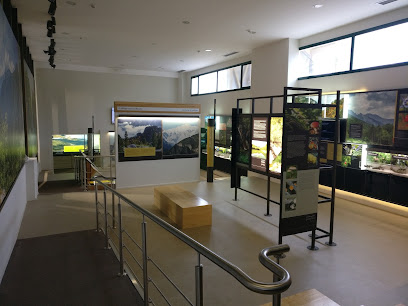
Zilniá Viewpoint
Experience the serene beauty of Zilniá Viewpoint, where breathtaking vistas of Olympus await every nature lover and traveler.
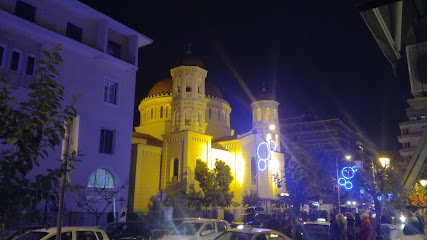
Enipeas Waterfall
Explore the enchanting Enipeas Waterfall in Litochoro, Greece – a paradise for hikers and nature lovers alike, surrounded by stunning landscapes and tranquility.
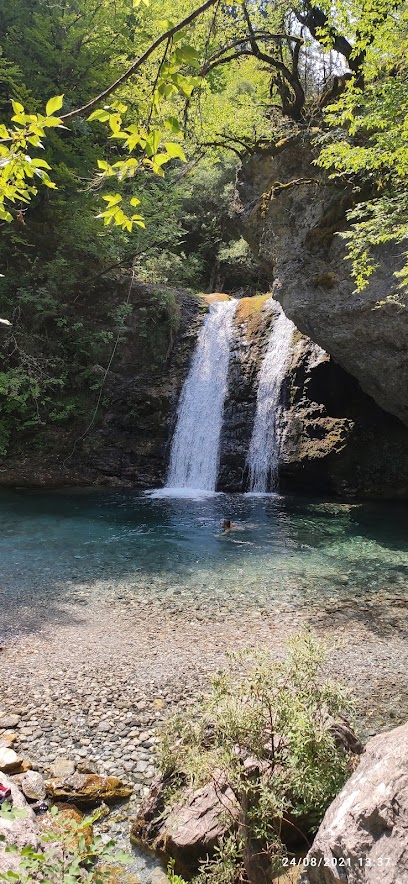
Hotel Olympus Mediterranean
Discover the beauty of Litochoro from the comfort of Hotel Olympus Mediterranean, where stunning views and warm hospitality await.
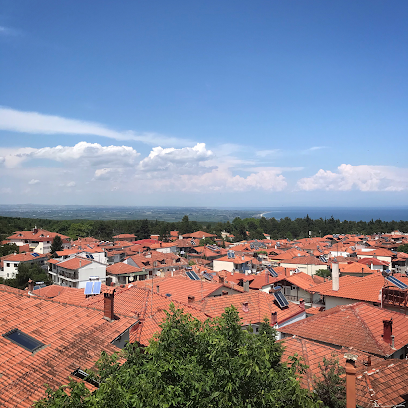
Olympion
Discover Olympion Patisserie: a delightful destination for exquisite Greek pastries and desserts in the heart of Litochoro.
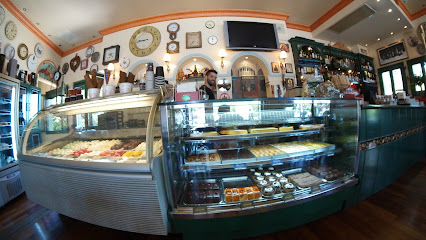
Essential bars & hidden hideouts
Upupa Epops
Discover the vibrant cocktail culture of Athens at Upupa Epops, where innovative drinks and a lively atmosphere await you.
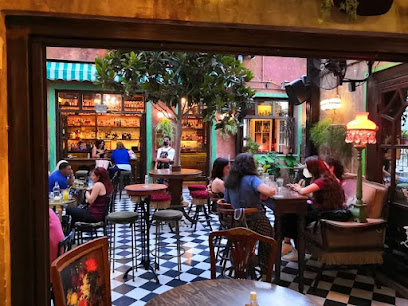
Prionia
Discover the Authentic Flavors of Greece at Prionia, a Scenic Restaurant at the Base of Mount Olympus.
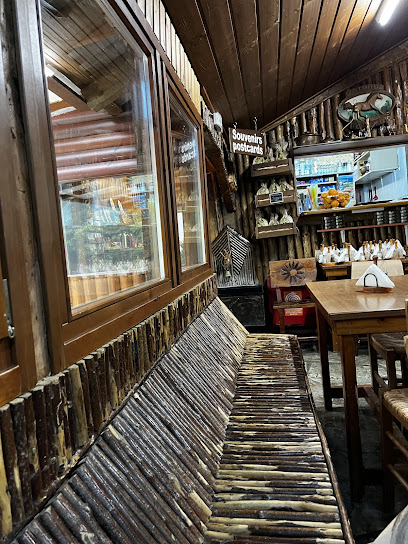
Caldera Bar
Discover the vibrant nightlife and delightful drinks at Caldera Bar in Paralia, Greece, where every visit is an unforgettable experience.
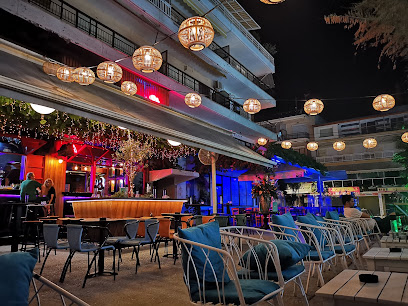
Stavros Refuge - Shelter D
Discover the charm of Stavros Refuge, where delicious Greek cuisine meets breathtaking mountain views in Litochoro, Greece.
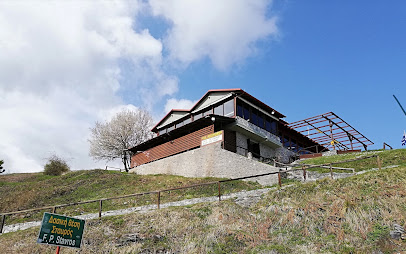
Stavento
Discover the vibrant atmosphere and stunning views at Stavento, a premier coastal bar in Platamon perfect for relaxation and entertainment.
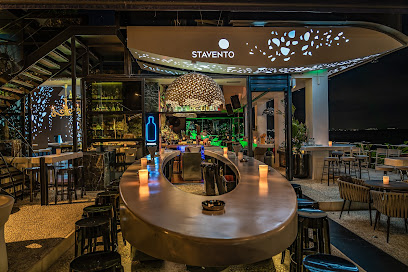
Le Moon Luxury Sea Side Beach Bar Restaurant
Experience unparalleled luxury and breathtaking views at Le Moon Luxury Sea Side Beach Bar Restaurant, the perfect seaside escape in Litochoro.
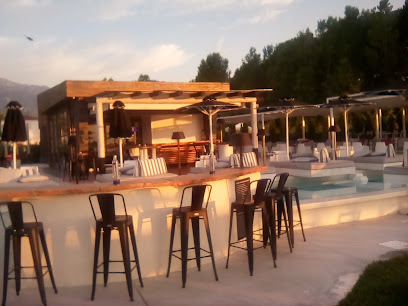
Oliver's Pub
Discover the lively atmosphere and delicious cuisine at Oliver's Pub, Katerini's favorite spot for food and drinks.
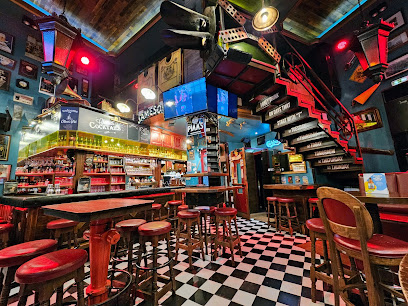
Ντίσκο Ρωμέικο
Discover the lively ambiance and local flavors at Ντίσκο Ρωμέικο, the heart of nightlife in Litochoro, Greece.
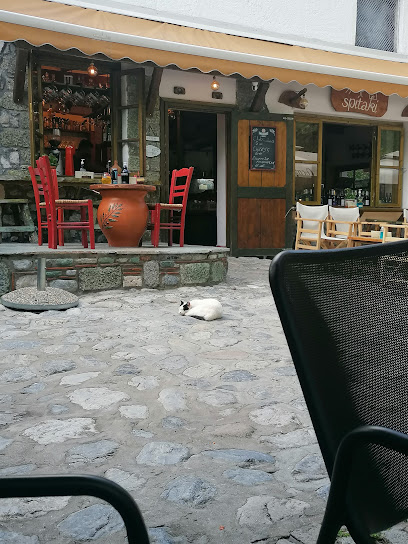
Cavo Dimo
Discover Cavo Dimo in Plaka: a charming bar and cafe offering authentic Mediterranean small plates and a relaxing atmosphere.
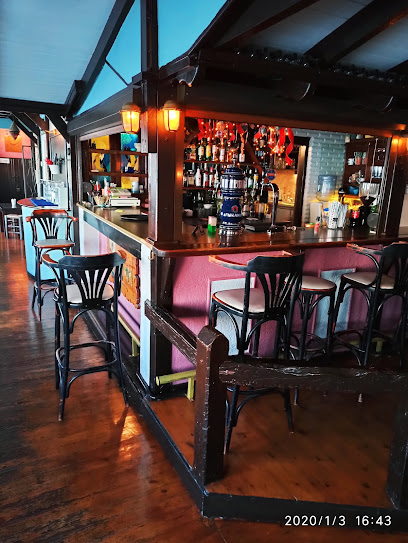
Roll in Stone
Discover the flavors of Litochoro at Roll in Stone, a charming gastropub offering a delightful menu and an extensive selection of craft beers.
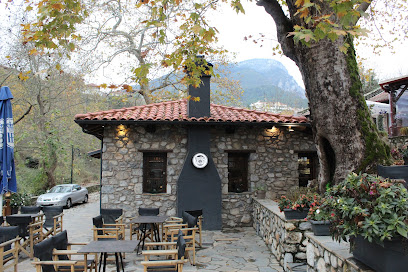
LEMON BEACH BAR
Experience the charm of Lemon Beach Bar in Plaka, where sun-soaked relaxation meets delightful refreshments and stunning sea views.
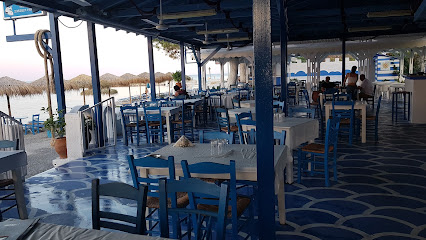
Akrotiri Beach Bar
Discover Akrotiri Beach Bar in Limenas Litochorou for a perfect blend of sun, sea, and vibrant beach life with exceptional drinks and views.
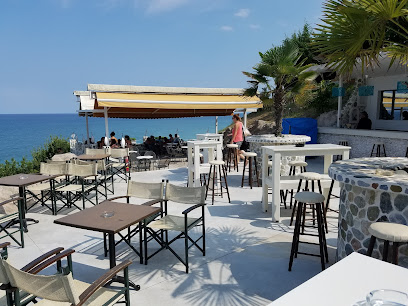
Xalara Beach Bar
Discover the perfect blend of relaxation and lively atmosphere at Xalara Beach Bar in East Olympos, Greece, where stunning views meet delicious cocktails.
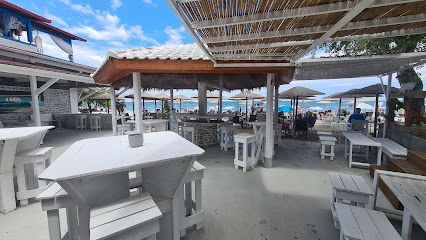
MOLOS the beach
Discover the enchanting Molos the Beach in Litochoro, where relaxation meets vibrant beach life along the Aegean Sea.
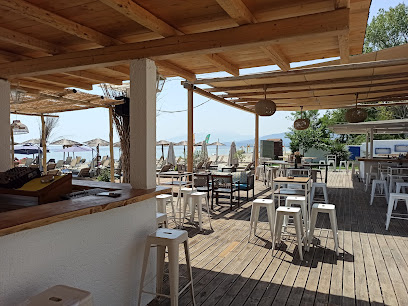
Local Phrases about Mount Olympus
-
- HelloΓειά σας
[Yah sas] - GoodbyeΑντίο
[Adio] - YesΝαι
[Neh] - NoΌχι
[Ohi] - Please/You're welcomeΠαρακαλώ
[Parakalo] - Thank youΕυχαριστώ
[Efharisto] - Excuse me/SorryΣυγνώμη
[Signomi] - How are you?Τι κάνετε;
[Ti kanete] - Fine. And you?Καλά. Εσείς;
[Kala. Esis] - Do you speak English?Μιλάτε αγγλικά;
[Milate anglika] - I don't understandΔεν καταλαβαίνω
[Den katalaveno]
- HelloΓειά σας
-
- I'd like to see the menu, pleaseΘα ήθελα να δω το μενού, παρακαλώ
[Tha ithela na do to menou, parakalo] - I don't eat meatΔεν τρώω κρέας
[Den troo kreas] - Cheers!Υγεία!
[Yeha] - I would like to pay, pleaseΘα ήθελα να πληρώσω, παρακαλώ
[Tha ithela na plirosa, parakalo]
- I'd like to see the menu, pleaseΘα ήθελα να δω το μενού, παρακαλώ
-
- Help!Βοήθεια!
[Voi-thee-ah] - Go away!Φύγε!
[Fige] - Call the Police!Καλέστε την αστυνομία!
[Ka-le-steh tin asti-no-mia] - Call a doctor!Καλέστε ένα γιατρό!
[Ka-le-steh ena ya-tro] - I'm lostΈχω χαθεί
[Eho cha-thee] - I'm illΕίμαι άρρωστος
[Eh-mai ar-ro-stos]
- Help!Βοήθεια!
-
- I'd like to buy...Θα ήθελα να αγοράσω...
[Tha ithela na agoraso] - I'm just lookingΑπλά κοιτάω
[Apla kitao] - How much is it?Πόσο κοστίζει;
[Poso kostizi] - That's too expensiveΑυτό είναι πολύ ακριβό
[Afto ine poli akribo] - Can you lower the price?Μπορείτε να μειώσετε την τιμή;
[Borite na miosete tin timi]
- I'd like to buy...Θα ήθελα να αγοράσω...
-
- What time is it?Τι ώρα είναι;
[Ti o-ra i-ne] - It's one o'clockΕίναι μία ώρα
[I-ne mi-a o-ra] - Half past (10)Μισή (10)
[Mi-si (10)] - MorningΠρωί
[Pro-ee] - AfternoonΑπόγευμα
[A-po-yev-ma] - EveningΒράδυ
[Vra-thee] - YesterdayΧθες
[Hthes] - TodayΣήμερα
[Si-me-ra] - TomorrowΑύριο
[Av-ri-o] - 1Ένα
[Eh-na] - 2Δύο
[Thi-o] - 3Τρία
[Tri-a] - 4Τέσσερα
[Te-se-ra] - 5Πέντε
[Pen-the] - 6Έξι
[E-xi] - 7Επτά
[Ep-ta] - 8Οκτώ
[Ok-to] - 9Εννιά
[E-ni-a] - 10Δέκα
[The-ka]
- What time is it?Τι ώρα είναι;
-
- Where's a/the...?Πού είναι ένα/το...;
[Pou i-ne ena/to] - What's the address?Ποια είναι η διεύθυνση;
[Pia i-ne ee di-ev-theen-si] - Can you show me (on the map)?Μπορείτε να μου δείξετε (στο χάρτη);
[Bo-ri-te na mu thi-xe-te (sto har-tee)] - When's the next (bus)?Πότε είναι το επόμενο (λεωφορείο);
[Po-te i-ne to e-po-me-no (le-o-fo-ree-o)] - A ticket (to ....)Ένα εισιτήριο (για ....);
[Eh-na ee-see-tee-ree-o (ya)]
- Where's a/the...?Πού είναι ένα/το...;
History of Mount Olympus
-
Mount Olympus, known in Greek mythology as the abode of the gods, is the highest mountain in Greece. According to ancient myths, it was home to the twelve Olympian gods, including Zeus, Hera, Poseidon, and Athena. The mountain's significance in Greek mythology is unparalleled, making it a symbol of divine power and authority. Legends say that the gods lived at the summit, which was hidden from human view by clouds, and from there, they watched over and influenced the mortal world.
-
Mount Olympus was not just a mythological site but also a place of actual worship in ancient Greece. Pilgrims would ascend the mountain to perform rituals and offer sacrifices to the gods. The Sanctuary of Zeus, one of the most significant religious sites, was located near the mountain's base. The ancient Greeks believed that by making offerings at this sanctuary, they could gain favor from Zeus and the other gods who resided on Olympus.
-
During the Persian Wars (499-449 BCE), Mount Olympus served as a strategic point due to its formidable terrain and high altitude. The mountain provided a natural defense barrier for the Greek city-states against the invading Persian forces. The rugged landscape and the mythological significance of the mountain inspired Greek soldiers, who saw it as a symbol of divine protection and strength.
-
After Greece became part of the Roman Empire in 146 BCE, Mount Olympus continued to hold cultural and religious significance. The Romans, who were deeply influenced by Greek culture, adopted many of the Greek gods and myths. They made pilgrimages to Mount Olympus to honor the gods, and Roman emperors, including Hadrian, showed great respect for the mountain, often visiting and commissioning works that celebrated its mythological heritage.
-
During the Byzantine era (330-1453 CE), Mount Olympus maintained its importance but saw a shift in its cultural significance. The rise of Christianity led to a decline in pagan worship, and many of the ancient temples were abandoned or repurposed. However, the mountain remained a symbol of natural beauty and spiritual reverence. Monasteries and hermitages were established on its slopes, where monks sought solitude and divine inspiration.
-
In the 19th and 20th centuries, Mount Olympus became a focal point for explorers and mountaineers. The first recorded ascent to its summit, Mytikas, was made in 1913 by Swiss climbers Frederic Boissonnas and Daniel Baud-Bovy, along with their Greek guide Christos Kakkalos. This marked the beginning of modern interest in the mountain, leading to numerous expeditions and the establishment of trails and refuges for hikers. Today, Mount Olympus is a popular destination for tourists and adventure enthusiasts, offering a unique blend of natural beauty and mythological history.
Mount Olympus Essentials
-
Mount Olympus is located in northern Greece, near the town of Litochoro. The nearest major city is Thessaloniki, which has an international airport (Thessaloniki Airport 'Makedonia'). From Thessaloniki, you can take a train or bus to Litochoro, which is approximately 1.5 hours away by road. Alternatively, you can rent a car and drive to Litochoro. The journey offers beautiful views of the Greek countryside.
-
While in the area, you can use local buses and taxis to travel between towns and villages. Litochoro serves as the main gateway to Mount Olympus, and from there, you can find local transport options to different trailheads. Renting a car can provide more flexibility, especially if you plan to explore more remote areas. For hiking, several well-marked trails lead up to the peak of Mount Olympus, and guided tours are also available.
-
The official currency in Greece is the Euro (EUR). Credit and debit cards are widely accepted in hotels, restaurants, and shops in larger towns like Litochoro. However, for smaller villages and mountain huts, it is advisable to carry cash. ATMs are available in Litochoro, but it’s a good idea to withdraw sufficient cash before heading into the mountain areas.
-
Mount Olympus and the surrounding areas are generally safe for tourists. However, like any destination, it is important to take standard precautions. Avoid leaving valuables in plain sight and be cautious when hiking, especially in less populated areas. There are no specific high-crime areas targeting tourists, but always stay vigilant and aware of your surroundings.
-
In case of emergency, dial 112 for immediate assistance. The local police station and medical facilities are available in Litochoro. It is highly recommended to have travel insurance that covers medical emergencies, especially if you plan to hike or engage in outdoor activities. For minor health issues, there are pharmacies in Litochoro where you can purchase over-the-counter medications.
-
Fashion: Do wear appropriate hiking gear if you plan to explore the trails of Mount Olympus. Dress modestly when visiting religious sites. Religion: Do respect local customs and traditions. If you visit monasteries or churches, dress modestly and cover your head. Public Transport: Do be respectful and offer your seat to elderly passengers. Don’t be loud or disruptive. Greetings: Do greet people with a handshake or a friendly 'Kalimera' (Good morning). Eating & Drinking: Do try local dishes and wines. Don’t refuse hospitality, as it is considered impolite. Always use utensils provided and avoid eating with your hands.
-
To experience Mount Olympus like a local, visit the local tavernas in Litochoro and try traditional Greek dishes such as moussaka and souvlaki. Engage with locals, who are often friendly and willing to share stories about the area. Consider visiting the Dion Archaeological Park, which offers a glimpse into ancient Greek history. For a unique experience, hike to the Enipeas Gorge or take a guided tour to learn more about the flora and fauna of the region.
Nearby Cities to Mount Olympus
-
Things To Do in Larissa
-
Things To Do in Meteora
-
Things To Do in Thessaloniki
-
Things To Do in Volos
-
Things To Do in Lamia
-
Things To Do in Ioannina
-
Things To Do in Serres
-
Things To Do in Pogradec
-
Things To Do in Delphi
-
Things To Do in Gjirokastër
-
Things To Do in Kavala
-
Things To Do in Tepelenë
-
Things To Do in Saranda
-
Things To Do in Patras
-
Things To Do in Corfu











